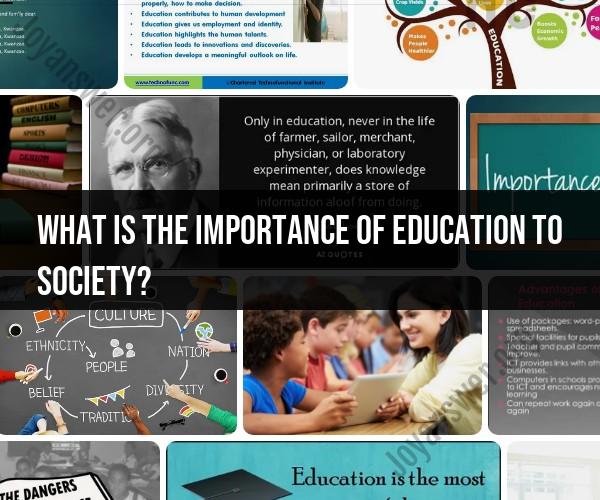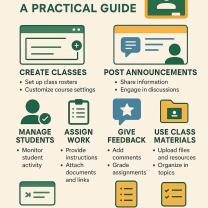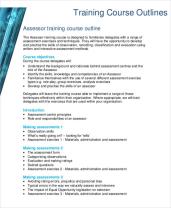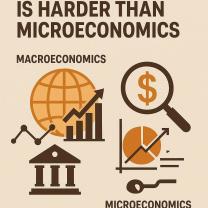What is the importance of Education to society?
Education plays a crucial role in the development and progress of society. Its significance extends beyond individual fulfillment to impact the overall well-being, growth, and stability of communities and nations. Here are some key aspects highlighting the importance of education to society:
Human Capital Development:
- Education contributes to the creation of a skilled and knowledgeable workforce, enhancing the human capital of a society. A well-educated population is more likely to be productive, innovative, and adaptable, fostering economic growth and development.
Social Mobility and Equality:
- Education serves as a powerful tool for social mobility, allowing individuals to improve their socioeconomic status. It helps break the cycle of poverty and promotes equality by providing opportunities for all members of society, regardless of background or circumstances.
Cultural Preservation and Transmission:
- Education plays a vital role in preserving and transmitting cultural values, traditions, and knowledge from one generation to the next. It helps maintain a sense of identity and continuity within a society.
Promotion of Civic Participation:
- An educated population is more likely to engage in civic activities, including voting, community service, and advocacy. Education fosters an understanding of civic responsibilities and the importance of contributing to the well-being of the community.
Innovation and Technological Advancement:
- Education is a key driver of innovation and technological progress. It equips individuals with the skills and knowledge needed to participate in and contribute to the advancement of science, technology, and various industries.
Economic Development:
- Education is directly linked to economic development. It enhances workforce productivity, promotes entrepreneurship, and attracts investments. A well-educated workforce is essential for the growth of industries and the overall economy.
Health and Well-being:
- Education is correlated with better health outcomes. It promotes healthy lifestyles, facilitates access to healthcare information, and empowers individuals to make informed choices about their well-being.
Conflict Prevention and Resolution:
- Education contributes to social cohesion and stability by fostering tolerance, understanding, and respect for diversity. It plays a role in preventing conflicts and promoting peaceful coexistence within societies.
Environmental Awareness:
- Education is instrumental in raising awareness about environmental issues and promoting sustainable practices. An educated populace is more likely to understand the importance of environmental conservation and take measures to address ecological challenges.
Global Competitiveness:
- Nations with well-established education systems are better positioned to compete globally. A highly educated workforce enhances a country's competitiveness in the global marketplace and facilitates participation in the knowledge-based economy.
Cultural and Intellectual Development:
- Education contributes to the cultural and intellectual enrichment of society. It encourages critical thinking, creativity, and the pursuit of knowledge, fostering a vibrant intellectual environment.
In summary, education is a cornerstone of societal progress, influencing various aspects of individual and collective life. It empowers individuals, strengthens communities, and contributes to the overall advancement and well-being of society.
1. Role of Education in Shaping and Benefiting Society
Education plays a crucial role in shaping and benefiting society by empowering individuals with knowledge, skills, and values that enable them to contribute to their communities and the world at large. It is a fundamental pillar of societal development, fostering progress, innovation, and overall well-being.
Education's influence on society manifests in various ways:
Promoting informed citizenry: Education equips individuals with the ability to analyze information critically, make informed decisions, and engage in civic participation. This leads to a more informed and engaged citizenry, capable of holding leaders accountable and contributing to a healthy democracy.
Enhancing economic productivity: Education is a key driver of economic growth and productivity. It equips individuals with the skills necessary to compete in the modern workforce, contributing to innovation, technological advancements, and overall economic prosperity.
Reducing poverty and inequality: Education is a powerful tool for reducing poverty and inequality. It provides individuals with the skills and knowledge to secure better employment opportunities, improve their income levels, and break the cycle of poverty.
Promoting social cohesion and understanding: Education fosters intercultural understanding and respect, breaking down barriers and promoting social cohesion within diverse societies. It encourages empathy, tolerance, and a sense of shared responsibility, contributing to a more harmonious and just society.
Nurturing innovation and creativity: Education cultivates critical thinking, problem-solving, and creative thinking skills, enabling individuals to challenge conventional wisdom, develop new ideas, and contribute to innovation and progress in various fields.
2. Contribution of Education to Societal Development and Progress
Education plays a central role in societal development and progress by:
Developing human capital: Education invests in human capital, empowering individuals to reach their full potential and contribute meaningfully to society. It fosters a skilled, knowledgeable, and adaptable workforce, essential for economic growth and social advancement.
Promoting knowledge creation and dissemination: Education supports the creation, dissemination, and application of knowledge across various disciplines. It encourages research, innovation, and the sharing of ideas, driving societal progress in various fields, from science and technology to arts and humanities.
Enhancing social mobility: Education provides individuals with opportunities for upward mobility, enabling them to improve their social and economic standing. It breaks down barriers and creates a more equitable society where individuals can succeed based on merit and talent.
Promoting responsible citizenship: Education cultivates a sense of civic responsibility, encouraging individuals to participate actively in their communities and contribute to the common good. It fosters informed decision-making, encourages volunteerism, and promotes sustainable development practices.
Addressing societal challenges: Education provides the tools and knowledge to address complex societal challenges, such as poverty, inequality, environmental degradation, and conflict. It empowers individuals to become agents of change and contribute to the development of sustainable and just societies.
3. Social Impacts of Improved Education within a Community
Improved education within a community leads to a range of positive social impacts:
Reduced poverty and inequality: Education empowers individuals to secure better employment opportunities, leading to increased income levels and a reduction in poverty rates. It also promotes social mobility, creating a more equitable distribution of wealth and opportunities.
Enhanced health and well-being: Education promotes healthy behaviors, increases access to healthcare, and fosters responsible decision-making. It leads to improved health indicators, reduced mortality rates, and a healthier overall population.
Reduced crime and delinquency: Education provides individuals with alternative pathways to success, reducing the likelihood of involvement in criminal activities. It promotes social integration, builds self-esteem, and fosters a sense of purpose, contributing to a safer and more secure community.
Increased civic participation and social cohesion: Education promotes active citizenship, encourages community engagement, and fosters intercultural understanding. It leads to increased voter turnout, volunteerism, and collaboration among diverse groups, strengthening the social fabric of the community.
Enhanced economic prosperity and productivity: An educated workforce is essential for economic growth and innovation. Education leads to a more skilled and adaptable workforce, enabling businesses to flourish and contributing to overall economic prosperity within the community.
In conclusion, education plays a transformative role in shaping and benefiting society. It is a powerful tool for promoting individual and societal progress, fostering innovation, and addressing complex challenges. By investing in education, communities can reap a multitude of social benefits, leading to a more just, equitable, and prosperous future.













